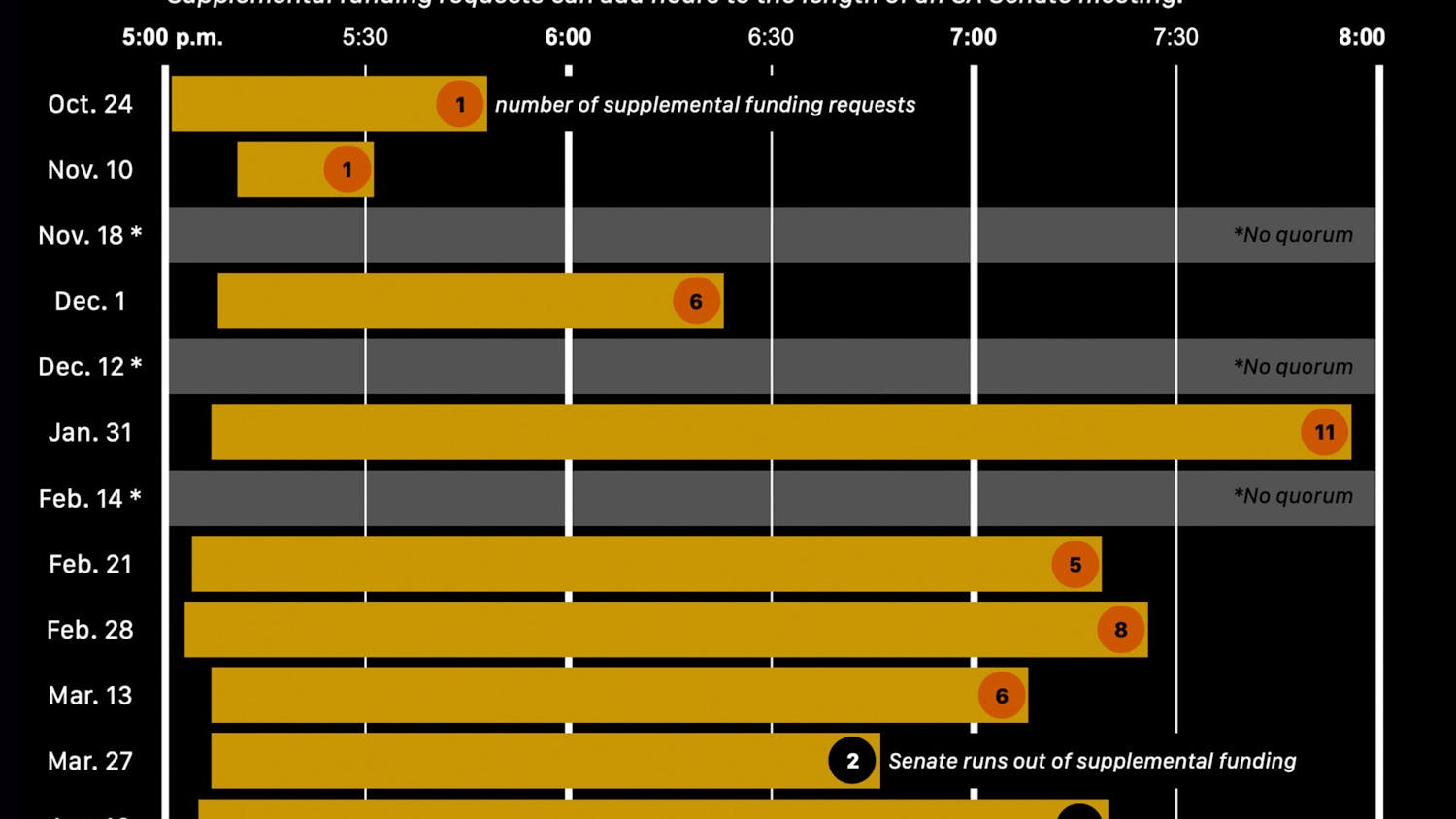Daniel Tobias, a second year physical therapy graduate student, said depression can impact a person’s daily life “as much as a sprained leg.”
On Thursday, UB Psychological Services Center held its annual depression screening in Park Hall for National Depression Screening Day. While the event was one of several depression outreach programs at UB, students also have their own ways to cope with stress and avoid falling into depression from overworking.
Megan Pailler, director of UB Psychological Services Center, said there were approximately 30 participants at the screening. The attendees were asked to fill out a questionnaire and watch an educational video on depression among college students. Based on the results of the questionnaire, students received free advice and were informed about programs designed to help combat depression.
But Pailler said depression goes beyond the screening.
“Feeling down and overwhelmed are body’s normal responses to stress,” she said. “But depression is pervasive and is felt every day.”
Depression, defined by the National Institute of Mental Health, is a “common but serious mental illness typically marked by sad or anxious feelings” and there are multiple forms of the illness. The American College Health Association-National College Health Assessment performed a nationwide survey of college students and about 30 percent of college students felt “so depressed that it was difficult to function.”
“If you have constant stress in your life and if you internalize the stress and cannot find ways to cope with it, depression will take over your life one or another way,” Tobias said.
Frank Krzystofiak, a professor in the School of Management, said he looks at students suffering with depression from an educator’s perspective.
“When I look at my graduate students here in the Management School, what I see is a group of overachieving students who used to be best and brightest in their previous academic or professional lives,” he said. “When they feel obligated to do 20 things at the same time, and as perfect as possible, and when they find it hard to maintain this overwhelming lifestyle and cannot meet their expectations, they begin to feel they are not the best and brightest anymore.”
Hanako Hirai, a junior business major, said in Japan, depression, stress and anxiety are common because people often work 14-15 hours a day.
“It’s acceptable to talk about depression if people lose a loved one or experienced a traumatic event, but if they are burnt out due to a stressful or unbalanced work-home life, they keep their depressed feelings to themselves,” Hirai said.
Nick Johns, a senior business and political science major, became more aware about the seriousness of depression when his friend committed suicide due to depression. He describes depression as an “epidemic disease” the public should handle the same way as an epidemic disease. He also emphasizes the importance of support from family and friends when dealing with depression.
“If you feel alone, you’ll more likely be depressed,” he said.
Johns emphasizes the importance of talking about the reasons for one’s depressed mood and assuring them you are there for them are simple but effective ways in terms of providing personal support to our family and friends.
“Depression is not something to feel ashamed of,” he said. “It’s something we have to deal with as a society. Depression doesn’t discriminate people, and despite the social stigma, it’s not an indicator of weakness or intelligence. It is a disease.”
He also thinks it’s sometimes useful to have a balanced approach because the reasons for depressed feelings may vary people to people, and some might not feel comfortable to talk about it.
Krzystofiak said students being perfectionist and focusing on their weaknesses instead of enhancing their strengths become one of their falling steps. His suggestion to students, who feel the negative impact of depression in their daily lives due to academic reasons, is to maintain good time management skills, use a calendar to be on top of your commitments, study more frequently instead of studying all night and focus on maintaining their strengths instead of stressing about their weaknesses.
“In real life, you are happy when you are successful,” he said “And you are successful when you do what you are good at, which mostly corresponds to what you like.”
Ian Smith, a junior finance major, said he will start to feel down when it reaches the peak point during exam weeks, when he is overwhelmed with stress. In order to keep the spirits high, he says he makes sure to take time for breaks and try not to push his limits hard. He said he will take time to play soccer to cope with stress.
UB provides on-campus support systems for students who are depressed or think they are depressed, such as the Mood Management seminar, a support group that helps student cope with mood swings and stress.
email: news@ubspectrum.com





